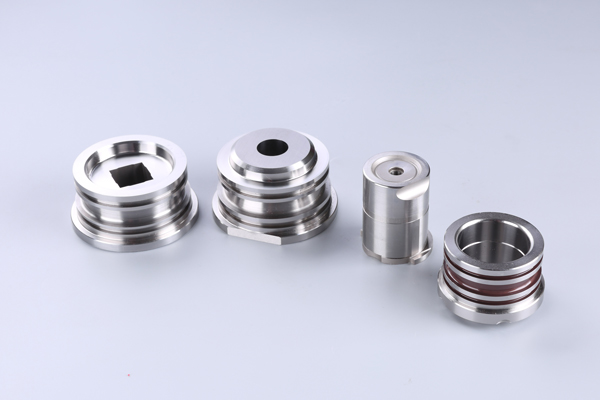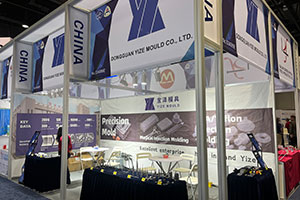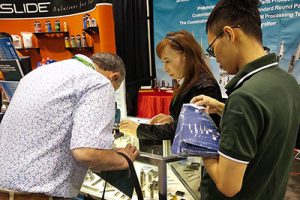What Special Requirements Does the Medical Device Industry Have for Tungsten Carbide Dies?
I. Introduction The medical device industry is a field that places extremely high demands on product quality and precision. During the production of medical devices, dies, as crucial process equipment, […]
I. Introduction
The medical device industry is a field that places extremely high demands on product quality and precision. During the production of medical devices, dies, as crucial process equipment, directly influence the quality and usage effectiveness of medical devices through their material and performance. Tungsten carbide dies are widely applied in the medical device industry due to their excellent wear resistance, corrosion resistance, high-temperature resistance, and high hardness. However, the medical device industry also imposes stricter and more specific requirements on tungsten carbide dies. This article will explore the special requirements of the medical device industry for tungsten carbide dies from aspects such as material properties, precision requirements, process compatibility, and hygiene standards.
II. Material Property Requirements
- High Wear Resistance: During the use of medical device dies, they need to withstand frequent friction and wear. Therefore, the medical device industry has extremely high requirements for the wear resistance of tungsten carbide dies. Tungsten carbide dies must be able to maintain their shape and precision for a long time to ensure the production quality of medical devices.
- Corrosion Resistance: In the production process of medical devices, they may come into contact with various chemicals and disinfectants. These substances may corrode the dies, thereby affecting their service life and performance. Therefore, the medical device industry requires tungsten carbide dies to have good corrosion resistance and be able to withstand the erosion of various chemicals and disinfectants.
- High-Temperature Resistance: During the production process of medical devices, some operations may need to be carried out under high-temperature conditions. Therefore, the medical device industry requires tungsten carbide dies to have good high-temperature resistance and be able to maintain their stability and precision at high temperatures.
- High Hardness: Medical device dies need to withstand relatively large pressure and impact forces, so they are required to have high hardness to ensure that the dies are not easily deformed or damaged during the processing.

III. Precision Requirements
- High-Precision Dimensional Control: Medical devices have extremely high precision requirements, so tungsten carbide dies must achieve high-precision dimensional control during the manufacturing process. This requires that the die manufacturing process strictly adhere to process specifications and use high-precision processing equipment and measuring tools to ensure that the dimensional accuracy of the dies meets the production requirements of medical devices.
- Complex Shape Processing Capability: The shapes of medical devices are often relatively complex, so tungsten carbide dies need to have good complex shape processing capability. This requires that advanced processing technologies and equipment, such as five-axis simultaneous machining and electrical discharge machining, be used during the die manufacturing process to ensure that the dies can accurately and efficiently process complex medical device shapes.
- High Surface Quality: Medical devices have extremely high requirements for surface quality, so the surface quality of tungsten carbide dies must also meet corresponding standards. The surface of the die must be smooth and free of defects to ensure that the surface quality of medical devices meets usage requirements.
IV. Process Compatibility Requirements
- Compatibility with Multiple Materials: During the manufacturing process of medical devices, various different materials may be used. Therefore, tungsten carbide dies need to have good compatibility with multiple materials and be able to adapt to the processing requirements of different materials.
- Adaptability to Multiple Processing Techniques: During the manufacturing process of medical devices, various different processing techniques may be employed, such as injection molding, die casting, and stamping. Therefore, tungsten carbide dies need to have good adaptability to multiple processing techniques and be able to meet the needs of different processing techniques.
V. Hygiene Standard Requirements
- Sterile Environment Requirements: Medical devices need to be produced and packaged in a sterile environment, so tungsten carbide dies must undergo strict cleaning and disinfection treatment before use. The surface of the die must be smooth and free of dead corners, making it easy to clean and disinfect to ensure that the production environment of medical devices meets hygiene standards.
- Biocompatibility Requirements: Some medical devices need to come into contact with the human body or be implanted inside the human body, so tungsten carbide dies are required to have good biocompatibility. This requires that no substances harmful to the human body be added during the manufacturing process of the die material, and at the same time, the surface of the die also needs to undergo special treatment to improve its biocompatibility.
- Environmental Protection Requirements: The medical device industry also has increasingly high environmental protection requirements, so tungsten carbide dies need to meet environmental protection standards during the manufacturing and use processes. This requires that aspects such as the selection of die materials, the processing process, and waste disposal all comply with environmental protection requirements to reduce pollution and damage to the environment.
VI. Conclusion
The medical device industry has extremely strict and specific requirements for tungsten carbide dies. From the perspectives of material properties, precision requirements, process compatibility, and hygiene standards, the requirements of the medical device industry for tungsten carbide dies are much higher than those of other industries. Therefore, when applying tungsten carbide dies in the medical device industry, it is necessary to fully consider these special requirements, select appropriate die materials and manufacturing processes to ensure the production quality and safety of medical devices. Meanwhile, with the continuous development of the medical device industry, the requirements for tungsten carbide dies will also continue to increase, necessitating continuous research and exploration of new materials and technologies to meet the needs of the industry.
Our factory business: carbide parts, mold parts, medical injection molds, precision injection molds, teflon PFA injection molding, PFA tube fittings. email: [email protected],whatsapp:+8613302615729.
Related Posts
- Analysis of Tungsten Carbide Die Installation
- Comprehensive Analysis of Techniques for Improving the Processing Efficiency of Tungsten Carbide Dies
- How Tungsten Carbide Die Realizes Harmonious Coexistence of Environmental Protection and High Efficiency
- Customized Tungsten Carbide Die: A Precise Process for Outstanding Quality






